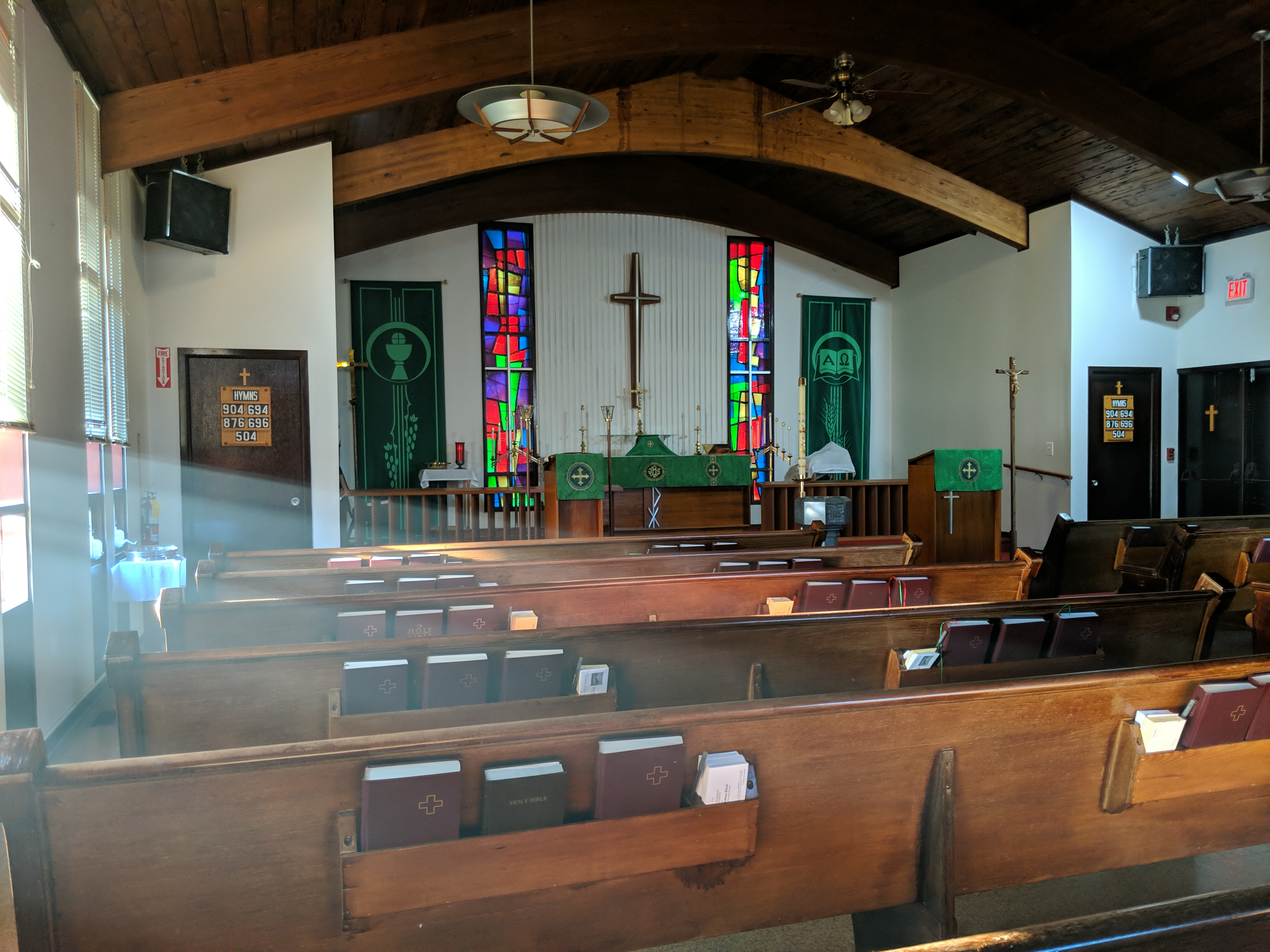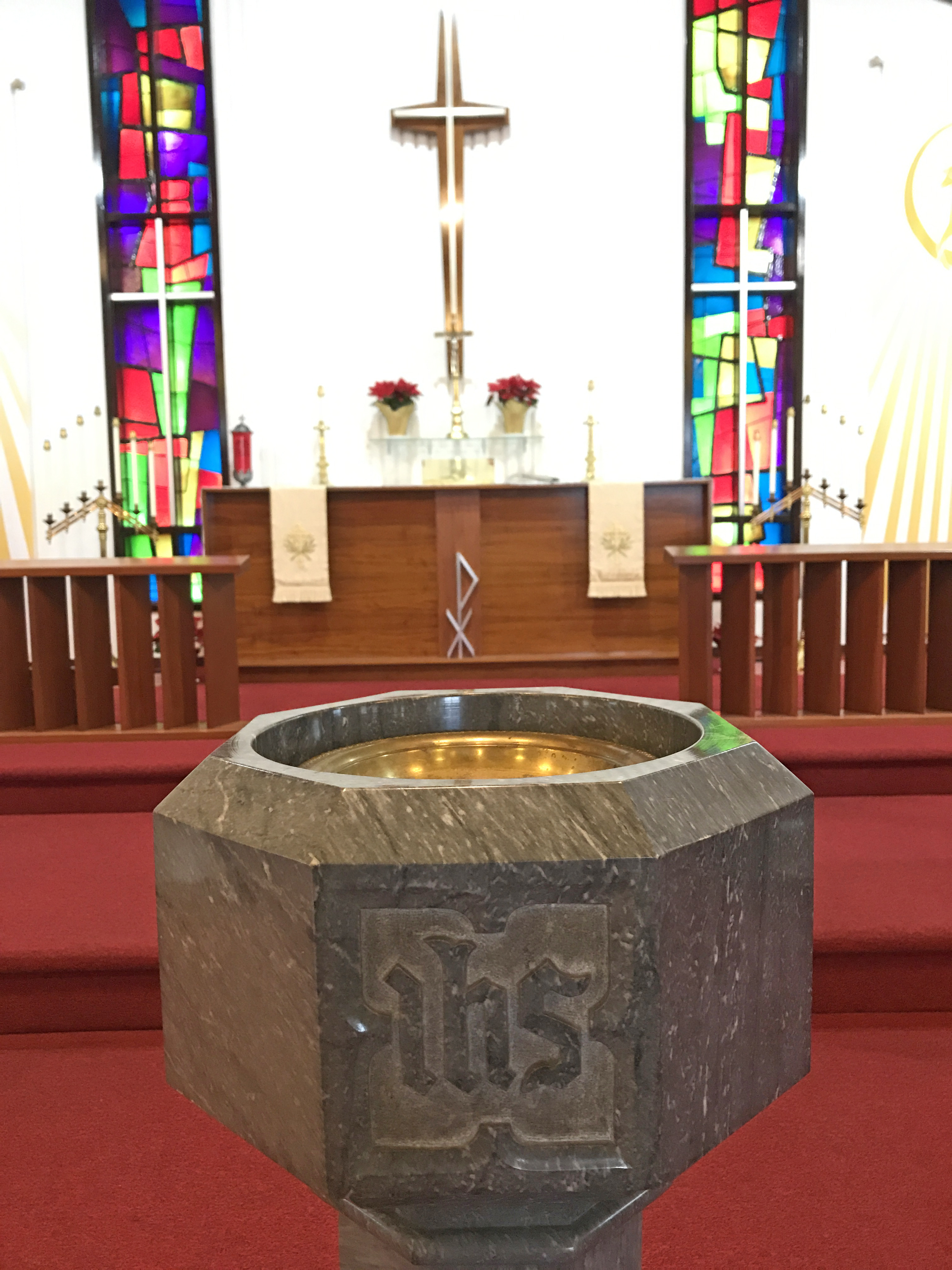Septuagesima – Sunday 28 January A✠D 2024
✠ Psalmody: Psalm 18:5-6a;1–2a, 27, 32, 49;9:9–10, 18–19a;130:1–4
✠ Lection: Daniel 9:2-10;1 Corinthians 9:24—10:4;St. Matthew 20:1–16
In the Name of the Father and of the ✠ Son and of the Holy Spirit. Amen.
How is it that you might come down from the Transfiguration mount with and in your Lord Jesus, and traverse life’s valleys of cross and suffering? These three Sundays of Pre-Lent teach you foundational truths about the Christian faith that are meant to strengthen and encourage you in body and soul so that you may endure. My opening question assumes much. It was only God and His true believers who were on that mountaintop last week. It is only God’s true believers that He afflicts with trials that grow faith. It is only those belonging to His kingdom who have any concern as to whether Jesus will be with them as they go about life and enter into their eternal rest.
The parable for Septuagesima comforts the Christian heart with the true teaching about good works as you seek to navigate these valleys shrouded in the shadow of death. As Lutherans, we believe, teach, and confess that the Scriptures say that it is necessary to do good works. Due to abuse of this doctrine, either unknowingly or intentionally, many of us may get a little on edge when we start hearing something such as it is necessary to do good works. We must first grasp the for what are good works necessary, because having that right understanding will alleviate much angst within us.
There are things that are necessary in order for a goal to be accomplished, any goal. If your goal is to get home after church without being cold, wet, and tired, then it is necessary for there to be a functioning engine, transmission, roof, doors, and glass, along with four, sufficiently-inflated tires upon which your car will travel to get you from church to home. Those things are necessary for that goal to be achieved. If our goal is to have music to accompany our liturgy and to lead us in song to God our Strength, then it is necessary for there to be amplifier, speakers, laptop, remote, and dependable communication among them all to get the music from digital files into your ears. Those parts doing their good work are necessary for that goal to be achieved.
If your goal is to obtain, and keep, the grace of God in the forgiveness of your sins, no, your good works are not necessary for that goal. To merit or earn the grace of God is not that for which your good works are necessary. You do not merit or earn grace by doing good works, but it is instead given to you because it is God’s will to do so. Above all, He is a gracious Landowner keeping watch over His vineyard. Above all, He is a gracious King reigning over His kingdom. Is it not lawful for Him to do what He wishes with His own things, such as grace? Praise His Holy Name that it is and that He does! By grace you’re saved, grace free and boundless. Pray that your soul believe and doubt it not and that you come to understand and love the Lord’s teaching on the nature and purpose of good works.
Our parable reveals the grace of God, not based on works, in this way: First, the kingdom of heaven, the reign of God, the very activity of the Lord among us to bring us out of darkness and into light, is like what? A Landowner who has a vineyard. It is His. He has made it. It is by design according to His good desire. His vineyard is orderly with no place for shenanigans or tomfoolery. His vineyard has a goal of its own. Why are vineyard made? Why are they planted? Possibly so that many may eat the fruit, yes, but most certainly, vineyards are planted to make wine and wine gladdens the hearts of man. There is gladness about this Landowner and His vineyard, His kingdom and where He most gladdens hearts that dwell in this valley of sorrows is in His sacramental Gift given and shed for you for the forgiveness of sins. The cup of blessing which we bless, is it not the communion in the Blood of Christ? The bread which we break, is it not the communion in the Body of Christ?
By His Word, He calls laborers to come, to enter into what is His. There, all labor is done under His watchful and caring eye. He promises to give a denarius for the day the same way that He promises to hear and answer your prayer for daily bread. And as laborers continue on in good works in the vineyard, even though they be hard, even though they may bring fatigue, all good works done in this Landowner’s vineyard are worthy, noble efforts, even in subduing the flesh that wants to be lazy while never contributing to worthwhile things.
As the day continues on and its end approaches, the Landowner still continues to call, to bring more and more into His vineyard. He is not content with a single call, but keeps returning to call more and more to come take part in the labor of His vineyard and whatever is right He will give them.
The beauty in doing good works is because your labor in the good vineyard of the Good Landowner is far beyond a transactional goal set for the end of the day where you desire to receive what you earn. If you know yourself; if you are honest about yourself; if you know what the Scriptures teach you about you, then you do not want to receive what you deserve. Take note of where Jesus leaves us as the hearers of the parable. You do not want the One, Who seeks to give heaven and eternal life to you as an inheritance, to respond to your desire, intention, or demand to receive what you think you deserve with the words, “Take what is yours and go your way.” You do not want to view your good works as the means by which you come to be in the vineyard, or remain, for to have you remain is the Landowner’s desire. Only those seeking to earn grace, not possible, are told to take what is theirs and to go. The other group, the called and chosen, are those who gladly receive grace from the Landowner, by faith in the Landowner and in His goodness.
So, what are that nature and purpose of good works? Your labor in good works is not so that you may achieve a goal of obtaining what the Lord already freely gives to you. The gracious Landowner, our great God and Savior, has already, before the foundation of the world, decided that it is good to give to every laborer that He calls into His vineyard. Therefore, His call into the vineyard isn’t so that you may rejoice that you have put in hard work and earned your place there. No, one can be in God’s Kingdom only by God’s gracious call on account of Christ. He Who was born, became Man, was transfigured, suffered and died in Jerusalem, and raised from the dead for your justification, is The Reason of God’s grace being given to you even as you labor with burden and in the heat of the day. He calls you to believe this and to come, be His own, entering into His Kingdom only by the gift of grace, for that is His desire. Hear Him!
It is in that kingdom that those laboring in love for the gracious Landowner, for His goodness, for His ways of righteousness, for His eternal kingdom, are then able to see the true value of their good works, for good works are what happen in a good kingdom. Good works are necessary because a good kingdom does not exist without good works taking place in them. Those works do not earn you place in that kingdom. They are a natural production in it and of it. Is not the home a reflection of this wonderful truth? By God’s grace, He gives spouse, child, parent, sibling without our work to earn such blessings. Then, we seek to do good within that goodness of family that is established by the Lord. We know the love that we have for our families. We know when we’re good to them. We know when we’re not. Seeking to do good to them is of the same nature as Christian good works and is even a part of them. The desire to be good to your family members and to do good to them are good works because God has made them to be so. Oh, give thanks to the Lord for He is good. The very vineyard, and life lived out therein, reflects the identity of the Landowner.
What, then, are the good works you are given joyfully to do as a laborer in this glorious vineyard, in this eternal Kingdom of Heaven?How do you even know when or how you do good to your family, your friend, your neighbor? You again go to the Word.The Catechism serves you well in helping write it upon the heart, for by its repetition of Christian doctrine and meditation upon its explanations, you can call to mind the 10 Commandments and their meanings. They are good works and, in their explanations, you can guide your own heart and mind to understand, embrace, and delight in what good works in the Lord’s vineyard look like, for the Christian heart desires to know how it can grasp the joy that its Savior places in doing good. Do you have desire for the good things in God’s good kingdom? It’s a gracious question, not one given in the tone of, “Well, do you?!”, but asked so as to awaken your heart with gladness in the ways of the kingdom to which you belong. It is honestly asked to you by a gracious God Who knows the heart and Spirit that He Himself has put in you. If you do have that desire, then His divine guidance shows you how to harness it, to live it, to love it. His Word shows you what you want to know about good works and the opportunities for them in your life. Not only shall you have no other gods, but it is a good work also to fear, love, and trust in God above all things. That is good for you more than you’ll ever understand. Not only shall you not despise preaching and God’s Word in your conscious choice not to come to church or pick up your Bible at home, but to deny your sinful self, by gladly hearing and learning His Word, is also a good work. That good work is good for you. Not only shall you not murder your neighbor, with either hand or heart, but it is a good work for you to help and support your neighbor in every physical need. Good works are good for you and they’re good for those with whom you live life. This is the nature of good works in God’s vineyard.
The pressure is off, then, when it comes to your good works. None of the keeping of the commandments obtains for you the goal of your sins being forgiven, which is your regenerate heart’s most desired after prize in all of life. You have that already in full on account of Christ. Your Christian heart is free from the burden of having to earn. Christ earned it all for you. Embrace, then, your good works, knowing that they earn you nothing of the eternal prize already yours in Jesus’ death for the forgiveness of all your sins, but believing that there is great and godly reason, here in His vineyard, why they are called good works.
In ✠ Jesus’ Name. Amen.















Comments are closed, but trackbacks and pingbacks are open.